My short story ‘Pumping up Napoleon’, now 21 years old, gave a little kick of life recently, with some interest from young students in South Korea. This is the first of three posts in which I try to answer their questions about a story written before they were born.
Out of the blue came a query from enthusiastic teacher Richie Madewell, asking if I would be willing to participate in this Q&A. His students are aged 10-14 and are studying English through the medium of literature. This semester it’s dystopian science fiction. Richie wrote: “We’ve already read Slaughterhouse-Five, Fahrenheit 451, and Paris, at Night. After ‘Pumping up Napoleon’ we’ll dive into Brave New World and Do Androids Dream of Electric Sheep?”
My short story in that company of novels? I felt very honoured. And though there was the slight difficulty of forming definitive answers to questions I’d left open so many years ago, I felt grateful to be alive to give it a try.
Briefly: in my story, Napoleon has been resurrected and is working as a history lecturer at a small Welsh university. Unfortunately the techniques for keeping him intact are costly and controversial. It all becomes a problem for Marjorie Campbell, who fell in love with Napoleon when he was still an unreachable historical figure.
I don’t put many stories online but ‘Pumping Up Napoleon’ is available and can be read in full at East of the Web.
Many thanks to Richie and the students for agreeing to let me turn the Q&A, which they have already received, into a blog post (or three) and for letting me have their original artwork inspired by their current reading of dystopian science fiction. See if you can spot which illustration goes with which story!
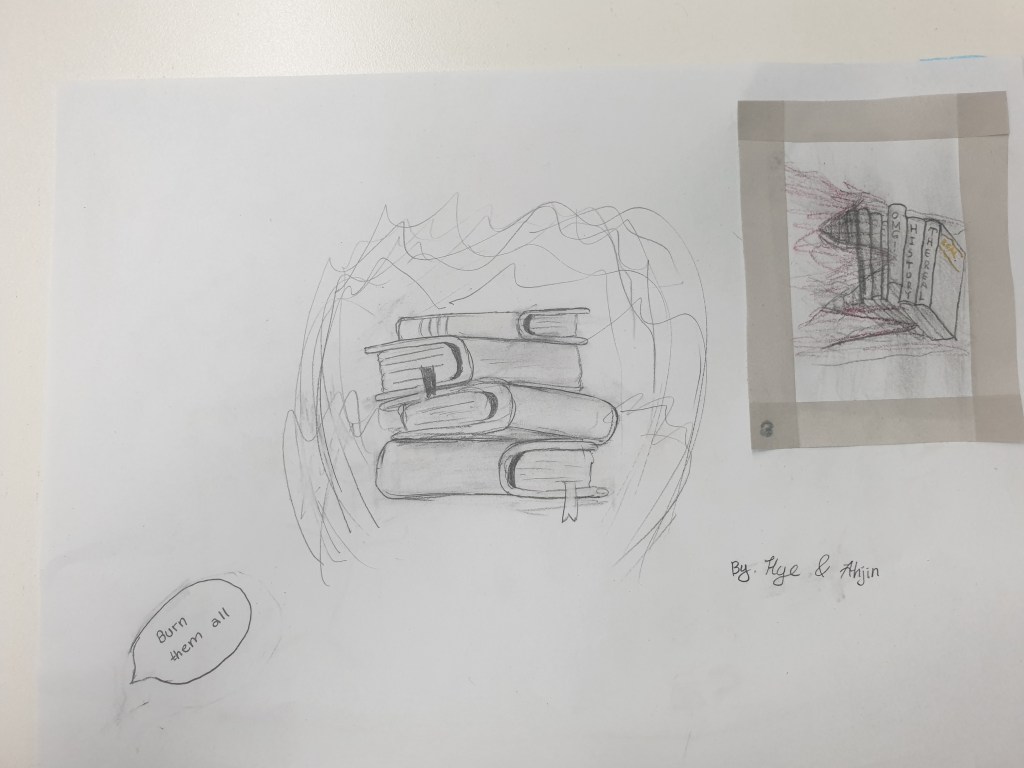
What was the purpose of writing this story? What message are you trying to tell us?
- Ahjin
Good question, Ahijn
I wanted to write a story that was entertaining as well as thought-provoking and to explore ideas that interested me. That was one purpose. But I feel you want to know something else – what is the story for?
On the one hand, the story aims to make some observations about the dysfunctionality of being human and what it means to be in love. One message you might take is that human contact is important but can be demanding as well as rewarding.
On the other hand, the story is also about bringing a famous person back to life and I believe I wanted to leave the reader with some questions to ponder, such as, how do we come to terms with the cycle of life and death? Do all living creatures have an equal right to existence?
On another day I might have answered this in a different way. You can cram quite a lot into a short story.
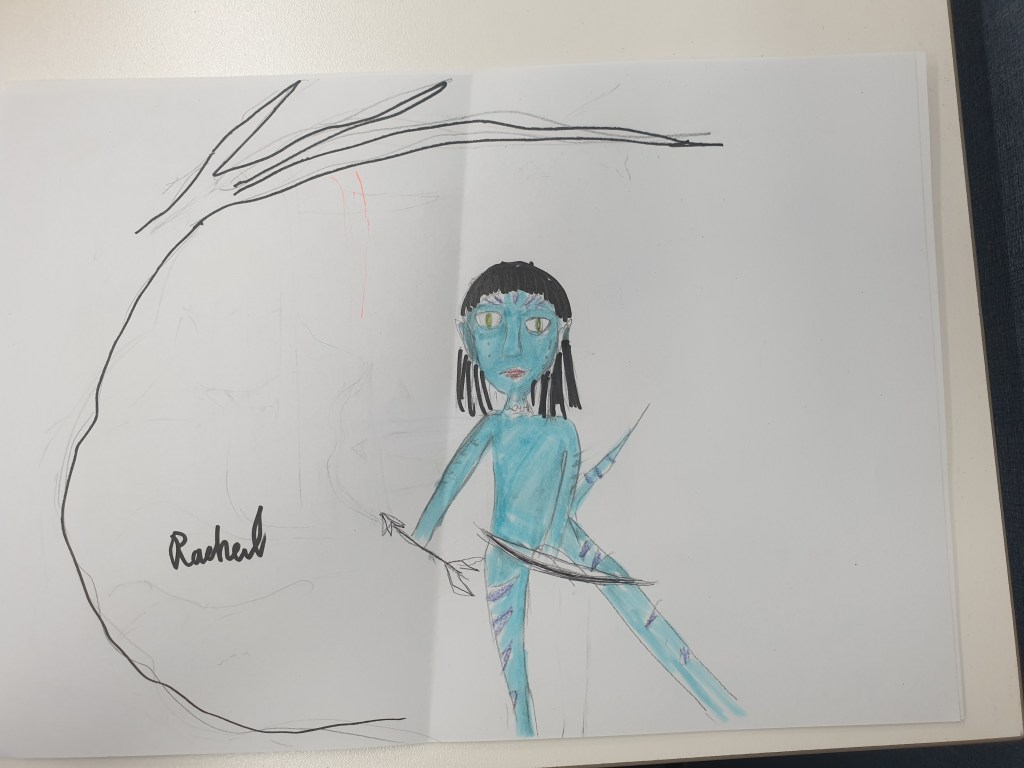
As far as I saw this kind of sci-fi story, it was mostly dark if it was a dystopia, but your story is kind of like a comedy. Are there any special reasons?
Rachel
Hi Rachel,
That is an interesting one for me to think about.
The main thing I remember is that the comic parts were always integral to the story, and that it all happened in quite a natural way.
Perhaps it helps me to make fun of things that worry me. I like the way the comedy offsets the bleakness of the story. Comedy can bring a welcome release of tension.
I think the comedy helps to create the surreal effect needed for a story like this, which involves making ludicrous things seem possible.
I am sure too that I was drawn to comedy as a way of getting the reader to engage with some difficult themes.
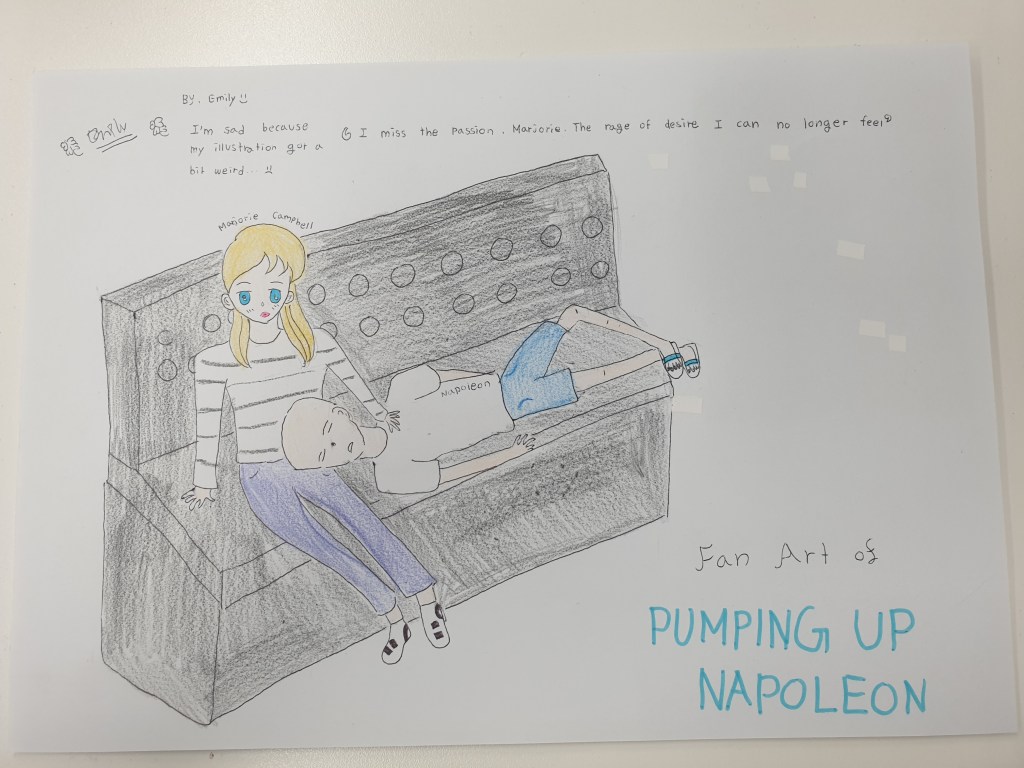
I thought that one of the themes in the story is ‘Controversy between human and animal rights’ because it mentioned mice used to revive Napoleon. Am I right?
- Emily
Well spotted, Emily! Yes – it bothers me that we use animals to serve our human needs, beyond the basics for survival. I can understand why some people feel that it is wrong to exploit animals at all – because where does one draw the line? In this case Napoleon’s existence is in jeopardy but his needs are the result of interference in the natural order, and far from basic.
Always putting human wishes first seems to have caused an imbalance in nature. I feel it would be a good principle to respect the needs of all living things. But I also know that we will sometimes sacrifice our principles if it means saving an individual person or creature we care about, whether that is a man or a mouse.
Incidentally, did you know that there is a famous photo of a mouse with an ear growing on its back from the 1990s?
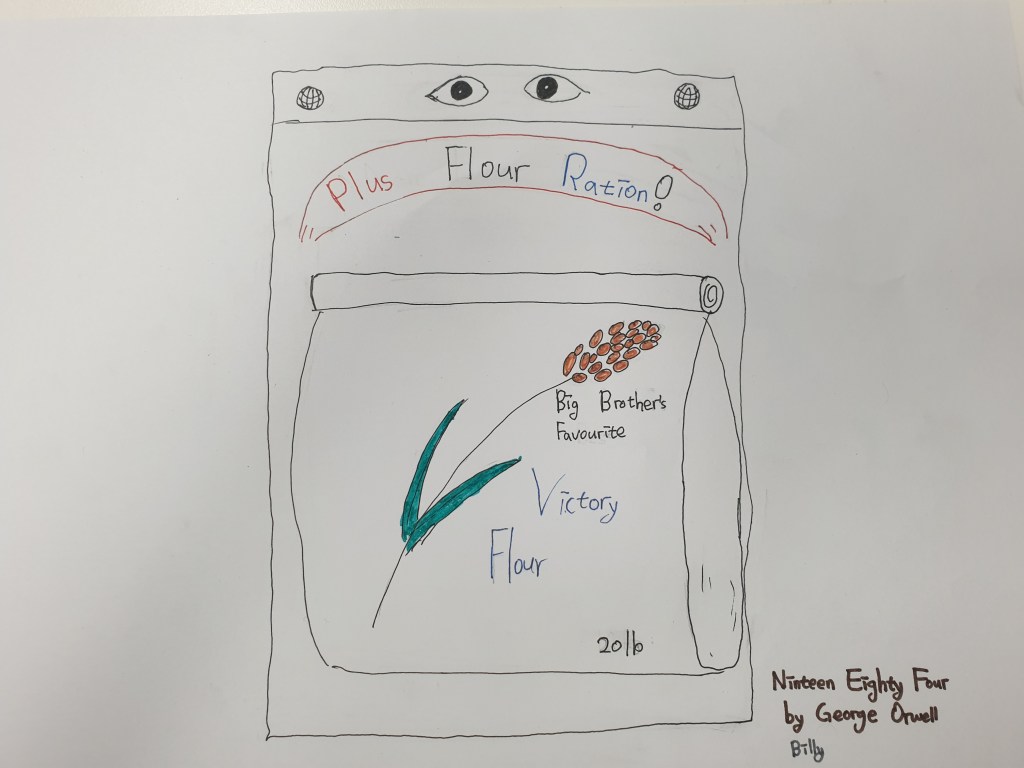
Does Napoleon love Marjorie?
- Billy
Dear Billy,
I think if we were to ask Napoleon he would say that it is too soon to know.
I am glad that you wondered about it though, so I will try to give an answer.
Napoleon is drawn to Marjorie and he needs her more and more. Yet at the end he declares that he can’t feel any real passion. I feel that he, like Marjorie, wants to be in love, but he doesn’t quite recognise it in this new and quieter form.
I think that Napoleon is in love with Marjorie. He has feelings for her, even though he doesn’t understand them fully yet. But the story could leave you thinking he’s too selfish to truly love anyone else. So it might not be such a great thing for Marjorie if she gets what she has wished for.
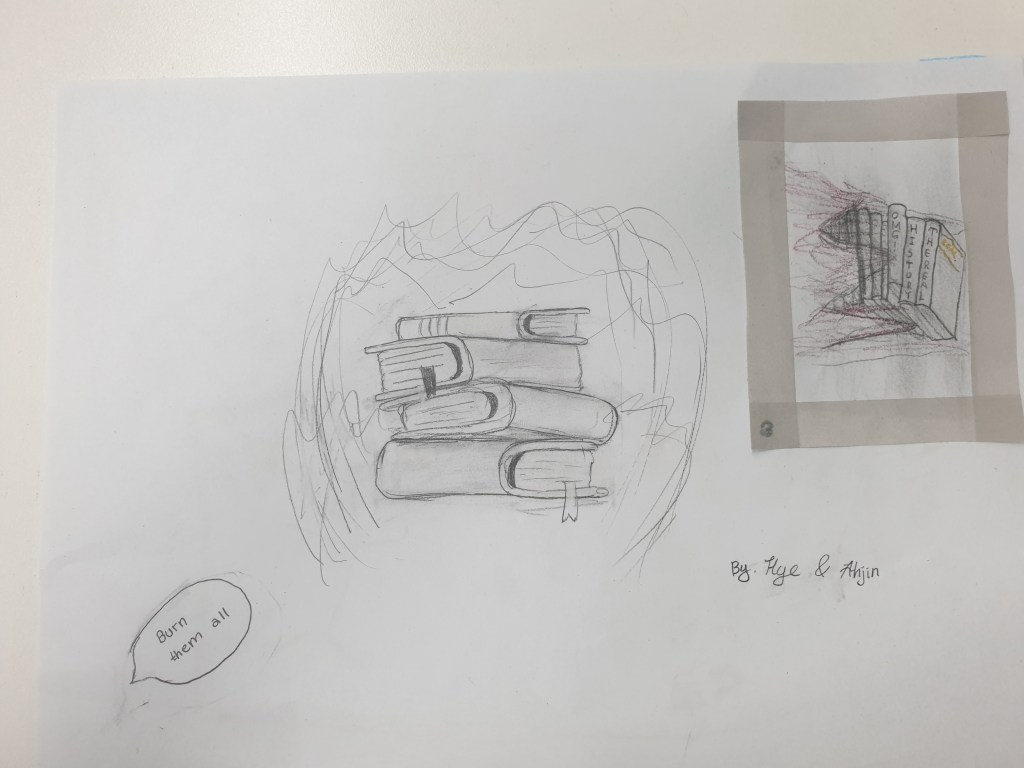
Why did you choose Napoleon to be the main character? Why didn’t you choose a different historically famous person?
- Hye
Thanks for getting me to wonder about this again, Hye.
I’m fairly sure that Napoleon just presented himself to my mind, as he would have done to the people in the story, who decide he should be resurrected.
There are a few reasons I can give why I chose him:
I knew his body had been embalmed so it still ‘existed’.
Even two hundred years after his death, Napoleon is still famous – and so I felt he could appear and I wouldn’t have to explain a lot about him and who he was.
He was a powerful and fascinating character in his own life, and he lends some of his allure to my story.
I also liked finding out more about him, particularly things that gave me insights into the man behind the reputation.
He was such a great force that I could imagine his energy somehow surviving beyond its natural span, so that helped too.
Napoleon was once greatly feared and revered. He used to be in command of an Empire, so I thought it would be interesting to transplant him to a modern-day situation, where he is expected to obey petty norms.
Also, I find something comical about him, and tragic too, because of his great fall. Those things appealed to me and suited my story.
So, there were a lot of reasons but the main thing is that once he appeared to me as an important character in a story I couldn’t get rid of him again until the story was finished.
How can you get such interesting ideas? Like where did you get the ideas for reviving Napoleon?
- Olivia
Writers will say that ideas are everywhere and this is true, but I remember starting out and being unsure what I wanted to write about or how. I have found that the more I write the more receptive I am to ideas and the more my creative brain feels allowed to be playful and imagine things too.
I might find an idea comes through a feeling or it might be triggered through something I have heard or read about. You can write about what you know and you can write about things you research because you are interested in them. I think it helps to be observant, to say ‘what if?’and to like making connections.
Now interesting ideas are always throwing themselves at me. If I was joking I would say, the secret is to know when to catch them and when to duck, but in fact, I tend to write them all down in case I run out of new ideas.
An idea can hang around for a very long time before it evolves into a story.
Sometimes it really helps to be given a starting point. For instance, ‘Pumping up Napoleon’ was written in response to a call from Mslexia magazine for pieces of ‘faction’: a blend of fact and fiction. They wanted us to bring a historical personage into a story. So then it was a question of deciding which person and how, and what the story was really about. Bringing Napoleon back to life as an experiment tied in with my interests in history, and in medical research and because I liked the idea of such an extraordinary person having to live in mundane reality.
Once my interest in writing the story was awakened I was ready for the ideas to come to me. Things can work themselves out in our subconscious too but it helps to be involved with your subject and interested because that gives the subconscious something to feed on.
When the ideas came to me I recognised them as something I could use because I already knew I wanted them and what I could do with them.
Sometimes the simplest question is hard to answer!
But Chekov said it more succinctly: when someone asked him how he found his stories, he explained his method by picking up an ashtray and saying, ‘Tomorrow, I will write a story about an ashtray’.
It seems to be a mixture of dreaming, making space for ideas to come and practical hard work!
Why does Marjorie start to question her feelings for Napoleon?
- Callie
Hello Callie,
Marjorie used to be in love with an idealised version of Napoleon but once he appears in her life he can never be perfect and so she recognises that her old way of feeling about him won’t be a good basis for a future together.
If the story is about loving a person as they are rather than worshipping an ideal, she wants to know what it is like to be with him, and wonders if she can love him as he is now.
That’s all for now: Richie’s students seem to be in three groups so I thought I’d split the post up too as it will be very long all in one go.
Hope to see you next time, and meanwhile if you have any questions or comments, please let me know!
Pumping Up Napoleon is also the title story of a collection of the same name, available from the publisher, Seren, and all the usual places. Not all the stories are dystopian science fiction, though most of them are on the weird side in some way.
Once again, many thanks to Richie Madewell and his students at Chung Dahm Institute (CDI) in South Korea.
Now the series of three is complete. Click here for Part 2 and here for Part 3 or trawl my blog and enjoy the featured images.
It is lovely to be among that lot of writers Maria. Love the questions and answers 🙂
LikeLiked by 1 person
Thanks for reading, Brian!
LikeLiked by 1 person
What amazing students! I wish I’d had this experience of learning at their age! That said, I’ve learned a lot from their intelligent questions and your fascinating answers, Maria. Thanks for sharing this 😊
LikeLiked by 1 person
It gave me a lot to think about too, Sandra. Thanks for reading!
LikeLiked by 1 person
Such an interesting premise for a story, Maria! I can see why young (and other!) readers are fascinated.
LikeLiked by 1 person
Thanks for reading, Becky. Am pleased that 21 years on it still reaches out!
LikeLiked by 1 person
A sign of a very good story:)
LikeLiked by 1 person
I so enjoyed your story. I’m glad I could read it online. I was glad it ended at that point when we had to imagine the ending.
LikeLiked by 1 person
Thanks very much for reading the story, Rachel! Am glad you liked the way it ended …
LikeLiked by 1 person
Love the Big Brother’s Victory Flour illustration!
LikeLiked by 1 person
The illustrations are great aren’t they? I see some book covers there. Thanks for looking, Josie!
LikeLiked by 1 person